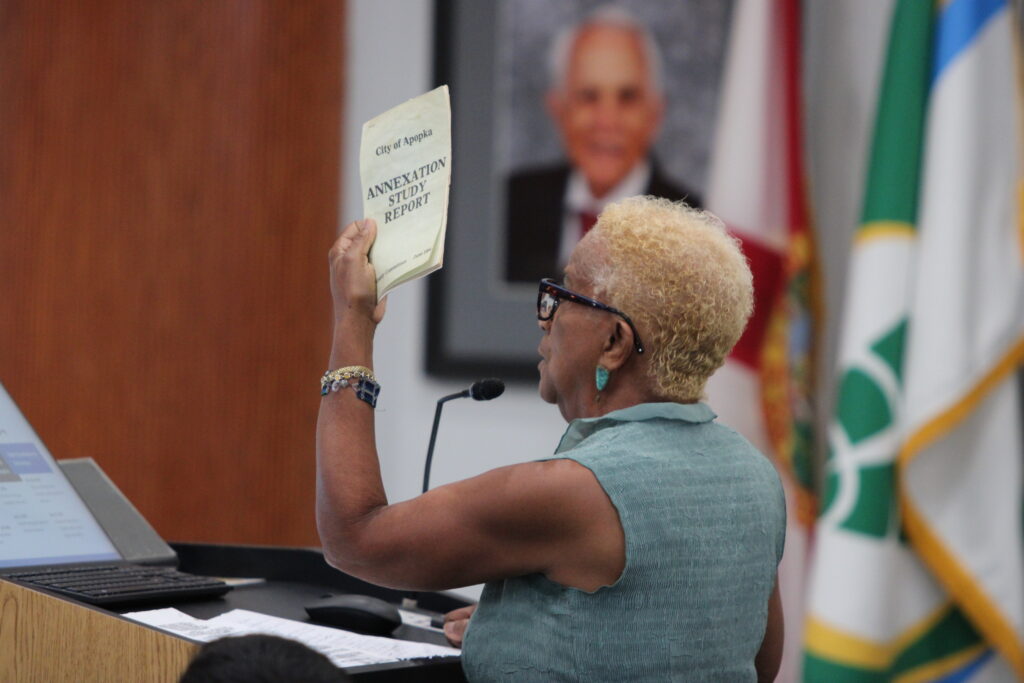
Vinnie Cammarano
Key Points
The Apopka City Council voted 5-0 Wednesday to restart the process for a South Apopka annexation feasibility study by reissuing a Request for Proposal (RFP), with the goal of putting the measure on the ballot in August 2026.
Concerns about the rushed process, the limited vendor participation, and a desire for more involvement from the community were cited as reasons for not voting on awarding a one-year contract for the feasibility study.
The original agenda item was for the City Council to vote to award a one-year contract for $87,850 to the consulting firm Blue Star Holdings International, with the option to renew for one additional year. Blue Star Holdings was the only company that responded to the RFP.
“I think that we just need to make sure that we’re taking our time for one, getting the best company to do the study for us, to make sure that we’re financially responsible, and that we’re not creating these timelines that only one company can actually bid on,” Commissioner Nadia Anderson said. “I think we just go back to the drawing board, make sure that we understand the scope of the study, and we put it back out there.”
The purpose of the feasibility study is to evaluate the legal, fiscal and operational feasibility of annexing South Apopka into the city’s boundaries in compliance with the Florida Statutes for annexation, according to Erica Maxwell, project lead for Blue Star Holdings International.
According to Maxwell, her company’s proposed timeline included delivering the feasibility study by Dec. 2 for City Council review, going to public notice in mid-December, and placing the annexation on the ballot for March 10, 2026.
The South Apopka annexation referendum was last on the ballot in 1984. While city residents passed the referendum, South Apopka residents rejected it. Both sides must approve the referendum for it to pass.
Over the years, public discussions and workshops were held to address putting the annexation issue back on the ballot.
Commissioner Alexander H. Smith has advocated for the annexation saying it would help citizens living in unincorporated Apopka who need city services and proper representation, especially those with Apopka addresses.
He pointed out the ordinance put in place about 80 years ago to segregate the area known as South Apopka from the city, as well as the failed 1984 referendum. He said that since the first referendum, people are more educated about annexation, and the city must continue to provide information on it.
“It is the right thing to do, to give them an opportunity, those that want to be a part of this city be a part of the city, and I think, to give them the right information that they will understand and appreciate the benefits of being a part of the city of Apopka,” Smith said. “It’s time for us to become one city and cut out the divisiveness and stop using the fact that you live in unincorporated Apopka, so therefore we can’t do anything for you.”
Francina Boykin, a lifelong resident of unincorporated Apopka, spoke up against the annexation, shining further light on the city ordinance that caused the geographical segregation.
“I oppose annexation of unincorporated Apopka into the city limits, and I feel it is ludicrous that we should spend $88,000 to study a neighborhood that Apopka created back in 1937 when an ordinance went out saying, ‘in order to segregate the places of residence and business of white and Negro persons, and prescribing a boundary line separating the places of residence or business of the two said races, and making a breach of such ordinance disorderly conduct and providing a penalty for violation of such,’” Boykin said.
Suggested Articles
No related articles found.



